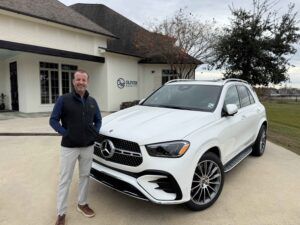Nobody’s All-American (anymore)
Early specialization in sports is perhaps the biggest contributor to the increase in children’s sports injuries. The trend has slowly blanketed American cities as kids have abandoned the playground for the playing field.
Now, with specialization, kids are beginning to train seriously at early ages. The lack of downtime between seasons and the addition of weight training places constant stress on developing bodies. Not surprisingly, since their workouts mirror those of pros, so their injuries do as well. With risks being high, it’s worth asking, is early sports specialization a good thing?
Despite all his experience training generations of student athletes, longtime Catholic High Coach Pete Boudreaux asserts, “[Coaches and parents] don’t know what sport kids have the potential to excel in when they are 8 or 10 years old.
“What if you determine your 8-year-old is going to be a basketball player, and then, 10 years later, he’s 5-foot-6? He’s probably not going to be a basketball player,” he explains. “You may have invested all kinds of time, energy and money. But putting that money into a college fund [rather than specialized athletic training] would be a pretty good investment with the state’s TOPS program.”
While many Baton Rouge parents feel the pressure to enroll their athletic kids in year-round or specialized training, not everyone succumbs to it.
Pat and Cecilia Cuntz have made a conscious effort to allow their 11-year-old son, Christopher, to run cross-country as well as play soccer, baseball and football. Both parents and some of their friends are former college athletes who now serve as volunteer coaches for their children’s teams and possess a laidback philosophy regarding team sports.
“I realize: If my kid is going to be a high school athlete, he’ll do it. It will happen. It will work out,” says Pat, who played LSU baseball and is now Co-CEO of EMCO Technologies.
“I don’t need to hire somebody to teach my kid [a particular sports skill]. I’m going to do my best to put him with the best parents, the best kids, the best coaches who can make him not just a better athlete, but a better kid. That’s not easy to do.”
Cecilia Cuntz agrees the multi-sport approach is best for her son, even though she didn’t take this route herself. She became a competitive gymnast at age 7 and has no regrets about her career, which ended with a knee injury in her junior year at LSU.
“It takes a very driven child [to practice six or seven hours a day]. I enjoyed it,” says Cecilia, who is now a general surgeon. “I got to do a lot of things most kids didn’t get to do. I traveled as a high school student to nationals and regionals in places like California. But, I missed a lot of the social aspects of high school, like prom.”
While she and Pat have enabled Christopher to take a different path, they admit they have been lucky to find flexible coaches. The Cuntzes realize the older he gets, the harder it will be to find teams that will accommodate his passion for multiple sports.
“If Christopher came to me tomorrow and said, I don’t want to play baseball, soccer or run anymore,’ I’d be fine with that,” says Pat Cuntz. “But he’s going to do something extracurricular.
“It’s important to let kids be kids—climb trees, ride their bikes, play drums, whatever. Parents shouldn’t put them in a program that doesn’t allow them to do those other things, because the most important thing is to be a kid.”











